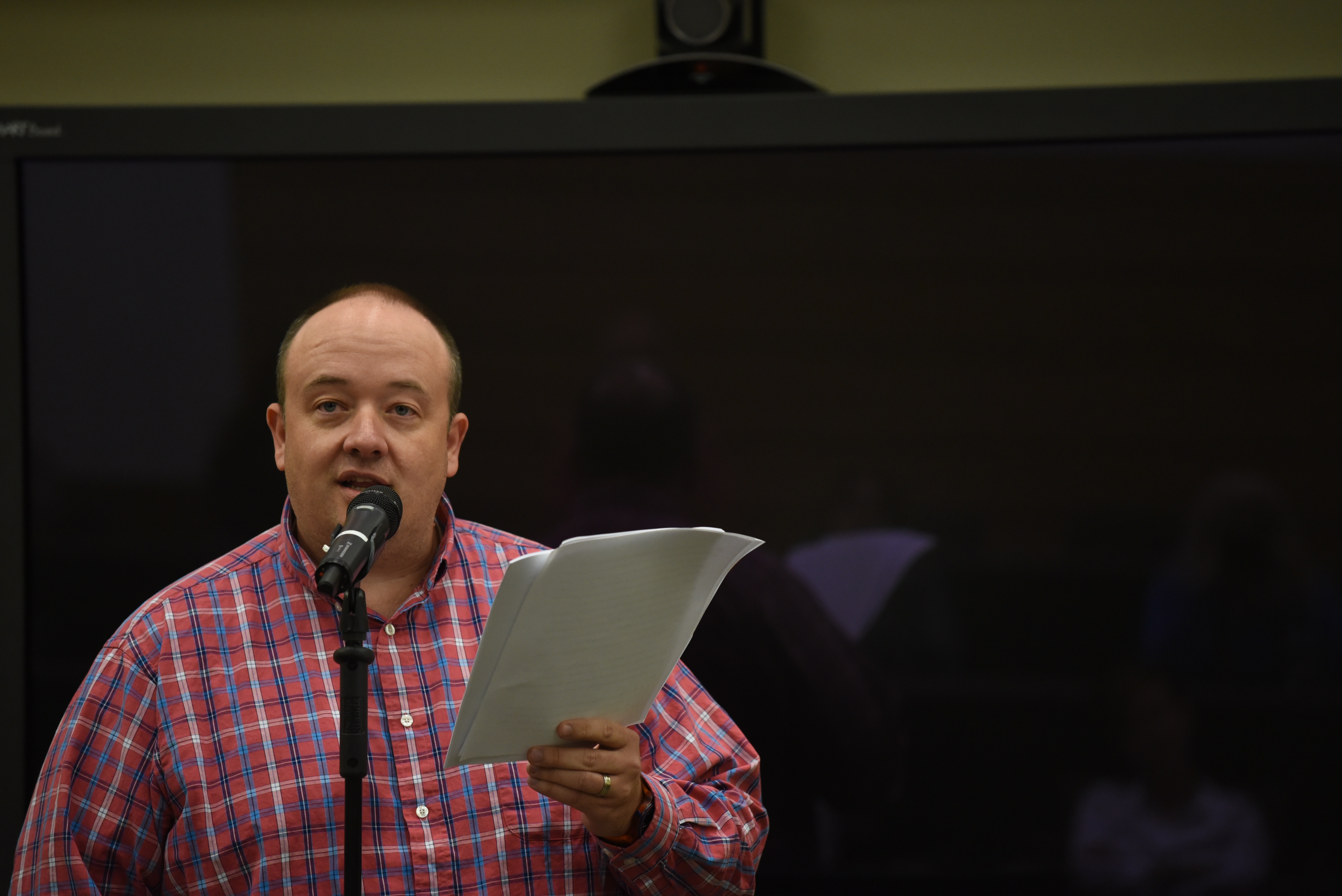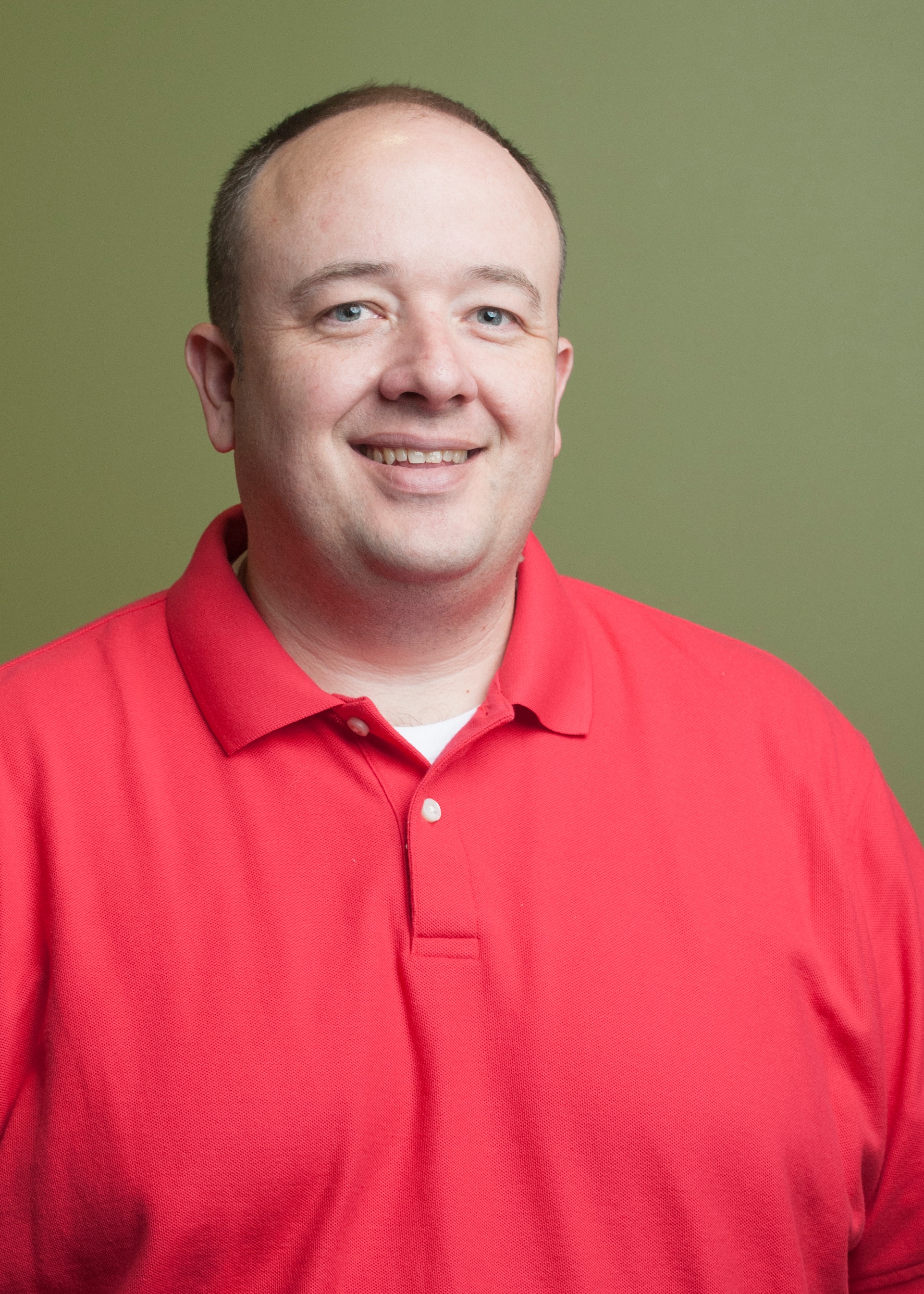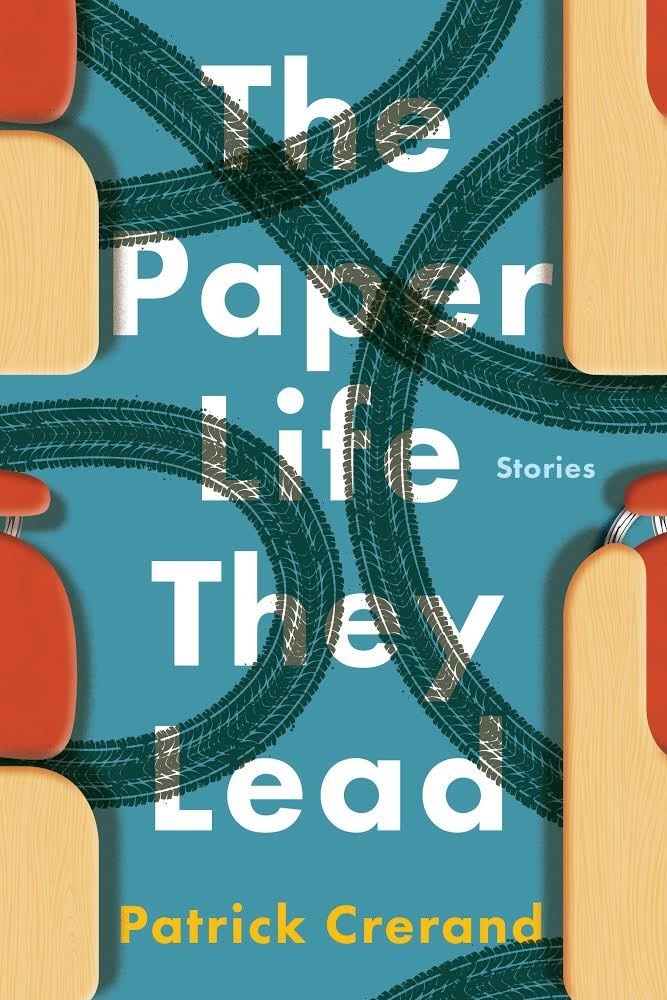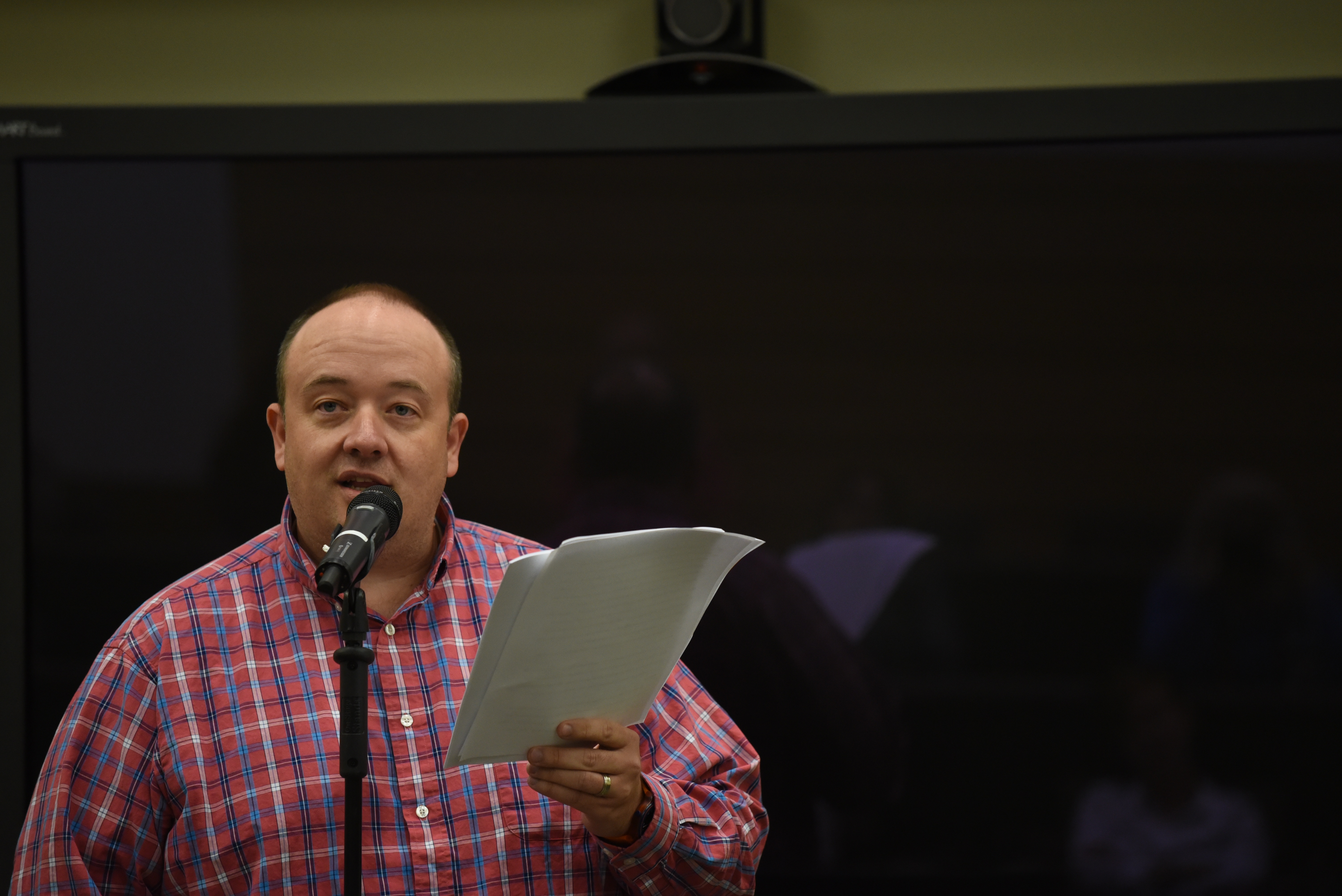Faculty Member Combines Wit and Imagination in Debut Short Story Collection
Dr. Pat Crerand is more than happy to share his own writing and publishing experiences with students and readers at Saint Leo University.

Dr. Pat Crerand is more than happy to share his own writing and publishing experiences with students and readers at Saint Leo University.

 A Saint Leo University faculty member is celebrating the publication of his first book: a collection of short stories that begin realistically and then veer off into fantasy with lots of sly humor, rich language, and odd characters for readers to puzzle over.
A Saint Leo University faculty member is celebrating the publication of his first book: a collection of short stories that begin realistically and then veer off into fantasy with lots of sly humor, rich language, and odd characters for readers to puzzle over.
Patrick Crerand, PhD, is the author of The Paper Life They Lead: Stories. The work was released in April by Arc Pair Press, a new publishing company that specializes in short collections of fiction, nonfiction, short novels and long essays. The Paper Life They Lead is itself a paperback collection of seven stories—each one of which was previously published in a literary magazine—that Dr. Crerand created over more than a decade. Dr. Crerand is an associate professor of English in the School of Arts and Sciences.
His collection starts off with the story "PIT-DAY," set during a contemporary airline flight, and highly realistic in the beginning. Then the pilot changes the flight plan to better suit his own imagination and the limited cast of characters react in entertaining ways. The idea for the story grew from discussions the author has had with friends about a fear of flying.
The collection also contains stories that involve big trucks and a cool car, respectively. "Semi Love" features an episode between two tractor-trailer truck drivers who have stopped driving for an extended period. Early on in the story the male narrator tells his girlfriend Georgia his view of their bond, that it is "a complex relationship based on temporary lapses in repulsion." And "The Glory of the Keys" vividly depicts high school life from the perspective of a Pontiac Sunfire.
One of the attributes common to several of the stories, Dr. Crerand acknowledged, is the presence of one or more characters  trying to fend for themselves in a landscape they can't completely understand. "Who do you trust and who don't you trust…I do feel a kinship with characters caught in this predicament. They're stuck in one story and get into another," he said.
trying to fend for themselves in a landscape they can't completely understand. "Who do you trust and who don't you trust…I do feel a kinship with characters caught in this predicament. They're stuck in one story and get into another," he said.
The main characters in the title story, "The Paper Life They Lead," are laboring through a harsh existence on a Midwest farm depicted with realistic descriptions of silos and milking herds. But the reader knows from the outset this is a fable inspired by the sight of a well-known and loved food label. The first line reads: "Morning on the Pepperidge Farm box is not all chocolate and cheese." From there, the reader journeys with the narrator beyond the familiar cookie bag wrapper into the fairy-tale dilemma of a small family that seems trapped, even though one character really wants to get out.
It may be that kind of story structure that prompted a reviewer of the book, well-regarded novelist Wiley Cash, to describe the collection "as realistic as it is experimental;" he promised readers will enjoy the tales.
Dr. Crerand said he gets many of his ideas by thinking about ordinary life scenes and just wondering, what if things were different? That helped in creating this collection. He also loved watching television shows growing up such as "The Twilight Zone," and reading the late author-screenwriter Ray Bradbury, who often wrote speculative fiction. Those were strong influences on his creative development.
Dr. Crerand is also at work currently on a collection of nonfiction essays and a novel.
The short story collection emerged first for publication, he said, because stories are often assigned in graduate school (even though many writers consider short stories hard to write because of the space limitation), and so he had material to keep working with. All the stories in the collection were improved by readings he gave from them to audiences while they were under development or in a first iteration. That is one of the lessons Dr. Crerand likes to share with students either in undergraduate creative writing classes, or in Saint Leo's Master of Arts program in creative writing.
 In another bit of advice, he warns beginning writers against sticking to only one genre, such as only poetry, or only fiction, or only nonfiction. For example, he said that he recently had one work, based on a real event, that he thought he should fictionalize. So he began it as a short story, but then realized it worked better as an essay, and that he should keep the factual elements intact.
In another bit of advice, he warns beginning writers against sticking to only one genre, such as only poetry, or only fiction, or only nonfiction. For example, he said that he recently had one work, based on a real event, that he thought he should fictionalize. So he began it as a short story, but then realized it worked better as an essay, and that he should keep the factual elements intact.
"If you don't see yourself writing in a particular genre, then you're really closing yourself off from what could be fertile territory for another kind of project," he said. Not surprisingly, he is very supportive of students in Saint Leo's graduate program in creative writing taking classes outside of their main concentration genre. And they gain exposure to writers from all backgrounds during summer residencies where guest authors—many of whom write in multiple genres— speak and read from their works. Students also learn from these efforts of experimentation of their fellow students during the degree program.
More information on the graduate program and the Saint Leo faculty members who regularly teach in the program is here